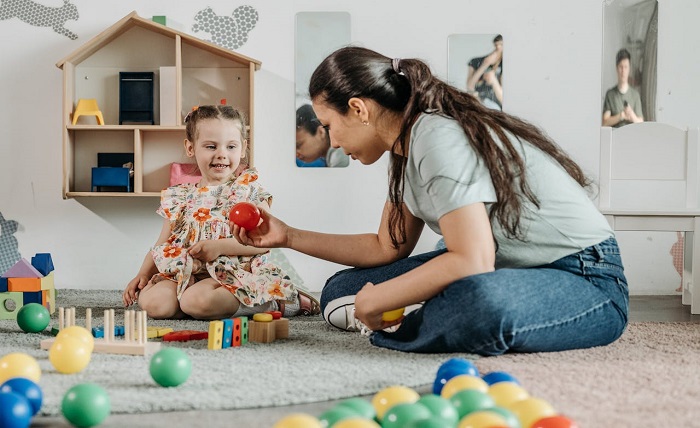
Selecting the right childcare centre is a significant milestone for parents and children alike. It’s not just about convenience or location—it’s about finding a safe, nurturing, and stimulating environment where your child can thrive. With so many options available, knowing what to look for can make the decision process far less overwhelming. This guide outlines key factors to consider when evaluating childcare centres so you can feel confident in your choice.
1. Licensing and Accreditation
Start with the basics. Ensure the centre is licensed by the appropriate government or regulatory authority. Licensing indicates that the facility meets minimum safety and staffing standards. Beyond licensing, accreditation from national or local childcare associations (such as the National Association for the Education of Young Children [NAEYC] in the U.S.) can indicate a commitment to higher standards in education, health, and safety.
2. Qualified and Caring Staff
The quality of staff makes a profound difference in your child’s experience. Look for educators and caregivers with appropriate qualifications in early childhood education. Nurturing childcare centres are often defined by the warmth and attentiveness of their staff, who create a secure and supportive environment for each child. Don’t hesitate to ask about staff credentials, ongoing training, and staff-to-child ratios.
Equally important is how staff interact with children. Are they warm, responsive, and engaged? Do they get down to the child’s level, make eye contact, and speak gently? A nurturing, attentive caregiver can have a long-lasting positive impact on your child’s emotional and cognitive development.
3. Health, Safety, and Cleanliness
A clean and safe environment is non-negotiable. During your visit, observe hygiene practices—are toys and surfaces sanitized regularly? Are handwashing procedures followed after diaper changes and before meals?
Look for secure entrances, gated play areas, and childproofed rooms. Fire exits, first-aid kits, and emergency procedures should be clearly outlined and accessible. Ask how the centre handles illnesses, allergies, or emergencies, and whether staff are trained in first aid and CPR.
4. Daily Routines and Structure
Children thrive on routine. Ask for a sample daily schedule to understand how the day is structured. A well-balanced program includes time for free play, structured activities, outdoor play, meals, naps, and quiet time.
It’s also important to understand how transitions are managed between activities. A consistent, predictable routine helps children feel secure and develop good habits.
5. Learning Through Play

High-quality childcare centres understand that young children learn best through play. Look for a curriculum that fosters exploration, creativity, and problem-solving through hands-on activities.
Ask how the centre promotes early literacy, math skills, social development, and emotional regulation. Activities should be age-appropriate and adaptable to the needs and interests of each child. Centres should also encourage curiosity and offer opportunities for sensory play, storytelling, music, and art.
6. Child-to-Educator Ratios
Low child-to-educator ratios are crucial for quality care. Fewer children per adult mean more attention, better supervision, and stronger relationships. These ratios also reduce stress on both caregivers and children.
Each country or state has its own guidelines, but as a rule of thumb, younger children require more individualized attention. Infants should ideally have one caregiver for every 3–4 babies, while toddlers and preschoolers can have slightly higher ratios.
7. Outdoor and Physical Activity
Physical play is essential for healthy development. Check that the centre provides regular outdoor time and has a safe, stimulating playground or outdoor space. Activities should encourage gross motor skills through running, climbing, jumping, and cooperative games.
If outdoor access is limited due to weather or location, find out how indoor physical activity is incorporated into the daily schedule.
8. Communication and Transparency
Open communication between parents and educators is a hallmark of a trustworthy centre. Find out how the staff keeps parents informed—daily reports, emails, mobile apps, or parent-teacher conferences are all common practices.
You should feel welcome to ask questions, raise concerns, and be involved in your child’s care and learning. Look for a centre that encourages parent participation through events, volunteering, or feedback sessions.
9. Inclusivity and Cultural Sensitivity
A good childcare centre respects diversity and inclusion. Ask how the program celebrates different cultures, accommodates children with special needs, and promotes kindness and empathy.
Materials, books, toys, and activities should reflect a variety of backgrounds and abilities, helping all children feel seen and valued.
10. Trust Your Instincts
While practical checklists are helpful, your instincts matter too. Observe how your child responds to the environment—do they seem curious, calm, or engaged? Pay attention to your own comfort level with the staff and space. If something feels “off,” it may not be the right fit, no matter how impressive the facilities appear.
11. Flexibility and Convenience
While quality should never be compromised, convenience is also important. Consider the location, opening hours, and policies for late pickups or holidays. Find out how the centre accommodates changes in schedule or unexpected circumstances.
Flexible drop-off and pickup options can significantly reduce daily stress, especially for working parents.
Choosing a childcare centre is a deeply personal decision, and no two families will have the same priorities. Take the time to visit multiple centres, ask questions, and observe closely. Make a checklist, but also give yourself space to evaluate how each centre aligns with your child’s personality and your family’s values.
Ultimately, the right childcare centre will provide more than just supervision—it will offer a nurturing, enriching environment where your child feels safe, supported, and inspired to grow.



